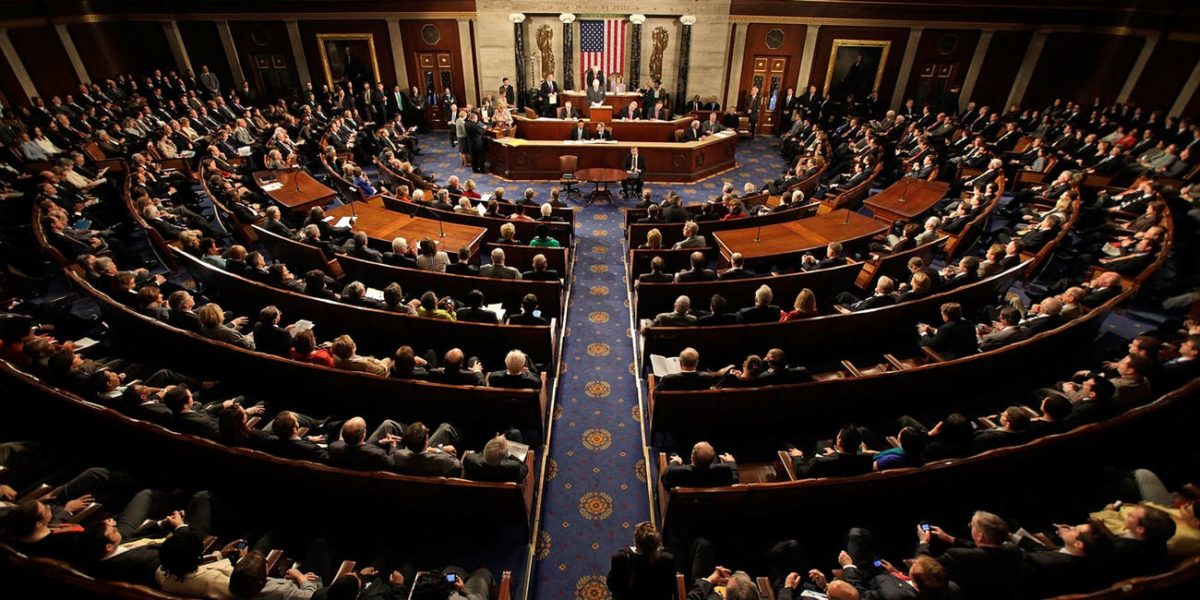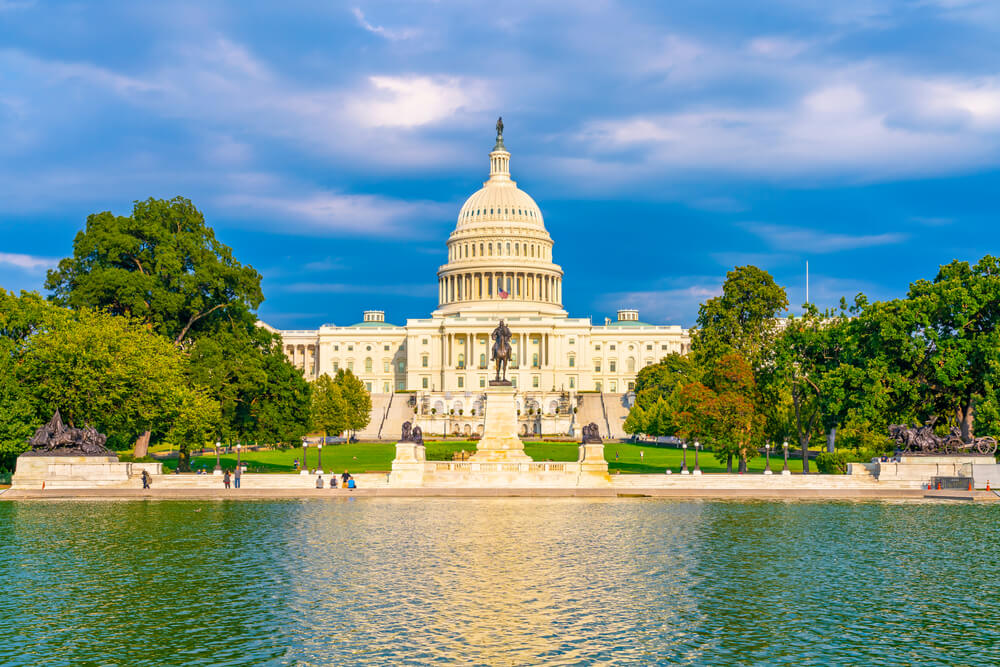An Optimistic Congress Aims to Legislate a Bipartisan Cannabis Omnibus Package

 By Sadaf Naushad, NCIA Intern
By Sadaf Naushad, NCIA Intern
As the cannabis industry progresses nationwide, the public demands Congress to pass major cannabis reforms. After months of opposition met among Congress members, a breath of fresh air awaits cannabis advocates, lobbyists, and consumers.
Last Thursday, two crucial congressmen revealed objectives to establish an extensive package of incremental cannabis proposals.
While Senate Majority Leader Chuck Schumer (D-NY) expects to file the final version of the Cannabis Administration and Opportunity Act (CAOA) sometime this summer, lawmakers are using the draft language as a guide to propose an alternative backup bill in creating a cannabis “omnibus” package.
With the wide-ranging package garnering support across Democratic and Republican lawmakers, industry insiders have high hopes that both chambers could come together to endorse an effective, bipartisan bill by the end of this year.
Let’s discuss the potential inclusions within the bipartisan cannabis package.
Recently, a number of Congress members have discussed the possibility of creating a new cannabis bill that would comprise several incremental measures, including provisions focusing on banking, access to medical cannabis for veterans, research expansion, access to SBA programs, drug sentencing reformations, and more.
Lead sponsor of the Secure and Fair Enforcement (SAFE) Banking Act, Rep. Ed Perlmutter (D-CO) is hoping to incorporate protection for financial institutions operating with state-legal cannabis businesses in a potential package. According to Rep. Perlmutter, members also have interest in including Rep. Dave Joyce’s (R-OH) Harnessing Opportunities by Pursuing Expungement (HOPE) Act, a bill designed to expunge prior marijuana convictions. Additionally, lawmakers are deliberating over granting cannabis businesses access to SBA loans and services that are obtainable to every other industry, a reform initially advocated by Sen. Jacky Rosen (D-NV).
These four concerns –- veterans, research, expungements, and banking – constitute a small portion of the package’s considerations.
Congress will also potentially consider including a non-cannabis item as part of the wider deal, known as the EQUAL Act, which looks to alleviate racial disparities within the criminal justice system by eliminating the federal sentencing disparity between crack and powder cocaine.
Leader Schumer, however, faces the requirement of having a 60-vote threshold to pass legislation. Although the chamber comprises a slim majority of Democrats with the vast majority of GOP members opposing numerous past bills, the 60-vote requirement may be attainable. In contrast to Schumer’s CAOA, indications are that the incremental package has more broad bipartisan support.
Though members have not reached an official deal as these major reforms remain under deliberation, Congress members are not abandoning their efforts to push for a broader-based CAOA bill.
Currently in the bicameral conference committee remains the large-scale manufacturing bill, known as the America COMPETES Act. Leader Schumer has rejected attempts to integrate the SAFE Banking Act as currently written into the COMPETES Act, alleging that it may weaken the ability to approve a slightly larger cannabis reform package. Having passed the House six times, industry insiders feel certain that the Senate will authorize the SAFE Banking Act later this year.
Altogether, the above-mentioned legislation would come up short in federally descheduling cannabis; however, these provisions may acquire the support necessary to reach U.S. President Biden’s desk.
NDAA Blues, But HOPE On The Horizon

 by Morgan Fox, NCIA’s Director of Media Relations
by Morgan Fox, NCIA’s Director of Media Relations
The last week or so has been an interesting one in Congress when it comes to cannabis policy reform, and carried with it the usual mix of positive and unfortunate developments.
First, in yet another installment in the long and ongoing saga that is the SAFE Banking Act’s path toward becoming law, a minor setback. Champion and lead sponsor Rep. Ed Permutter had been working for weeks to get SAFE Banking language included in the NDAA, or National Defense Authorization Act. This spending package is typically focused on security and military matters, and is considered “must-pass” legislation by both chambers. Now, you may be asking what allowing banks to more easily work with legal cannabis businesses has to do with national security, and the answer – oddly enough – is a lot. Beyond the obvious public safety benefits of no longer forcing most cannabis businesses to operate entirely in cash and making them targets for crime, allowing access to banking would dramatically increase financial transparency in the industry. This would give law enforcement additional tools to help prevent the admittedly rare occurrences of criminals extorting legal businesses or using them to launder money, which is certainly a security concern. Perhaps even more relevant, being able to use the financial services that are available to other legal industries would help remove significant barriers to entry into the legal market and allow small cannabis businesses to be more competitive with unregulated operators, some of whom have ties to international drug trafficking organizations that present an ongoing threat to global security.
Unfortunately, Rep. Perlmutter decided not to add the banking language to the NDAA at the urging of Speaker Pelosi in order to ensure the spending package would pass without issue. Despite this compromise, however, Rep. Perlmutter has vowed to attempt to add it to every available legislative vehicle going forward. Given the fact that the Senate is currently stalling on the SAFE Banking Act as a standalone bill, this may be the most viable strategy of getting cannabis banking reform through both chambers before the end of the current Congress.
Speaking of other vehicles for reform, the ongoing appropriations process continues to hold hope for passing a number of cannabis-related items in the near future. Lawmakers recently approved a continuing resolution to fund the government through February and avoid a shutdown. This means that there will be no changes to the previous budget until then, but it does give us more garner support for the provisions that we want to make sure are part of that spending package. That includes preventing the Department of Justice from targeting state-legal adult-use cannabis businesses and programs, SAFE Banking, improving access for veterans, expanding research, and more.
In better news, Reps. David Joyce (R-OH) and Alexandria Ocasio-Cortez (D-NY) partnered up to introduce a bill that would provide federal support for state-level expungement efforts. The Harnessing Opportunities by Pursuing Expungement (HOPE) Act would allocate $20million for a grant program to help reimburse states for the costs associated with expunging non-violent cannabis convictions. This is incredibly important because most of the federal expungement conversation has focused around federal convictions, yet the vast majority of arrests and convictions occur under state laws. Most states lack the resources and infrastructure to effectively address this issue at a large enough scale and in a manner that is affordable to the victims of prohibition who are just trying to clear their records of convictions for behavior that is now legal for a majority of Americans. It is wonderful to see bipartisan support for this important legislation, and we look forward to working with lawmakers to push it through as soon as possible.
That’s all for now, but stay tuned for further updates from Capitol Hill. And don’t forget to register for NCIA’s Cannabis Business Summit in San Francisco next week!

 By Sadaf Naushad, NCIA Intern
By Sadaf Naushad, NCIA Intern 

 by Morgan Fox, NCIA’s Director of Media Relations
by Morgan Fox, NCIA’s Director of Media Relations
Follow NCIA
Newsletter
Facebook
Twitter
LinkedIn
Instagram
News & Resource Topics
–
This Just In
How THCa Vapes Are Changing Consumer
Announcing NCIA’s 2026-2028 Board of Directors